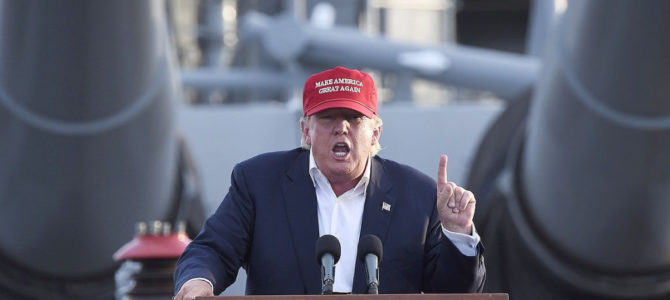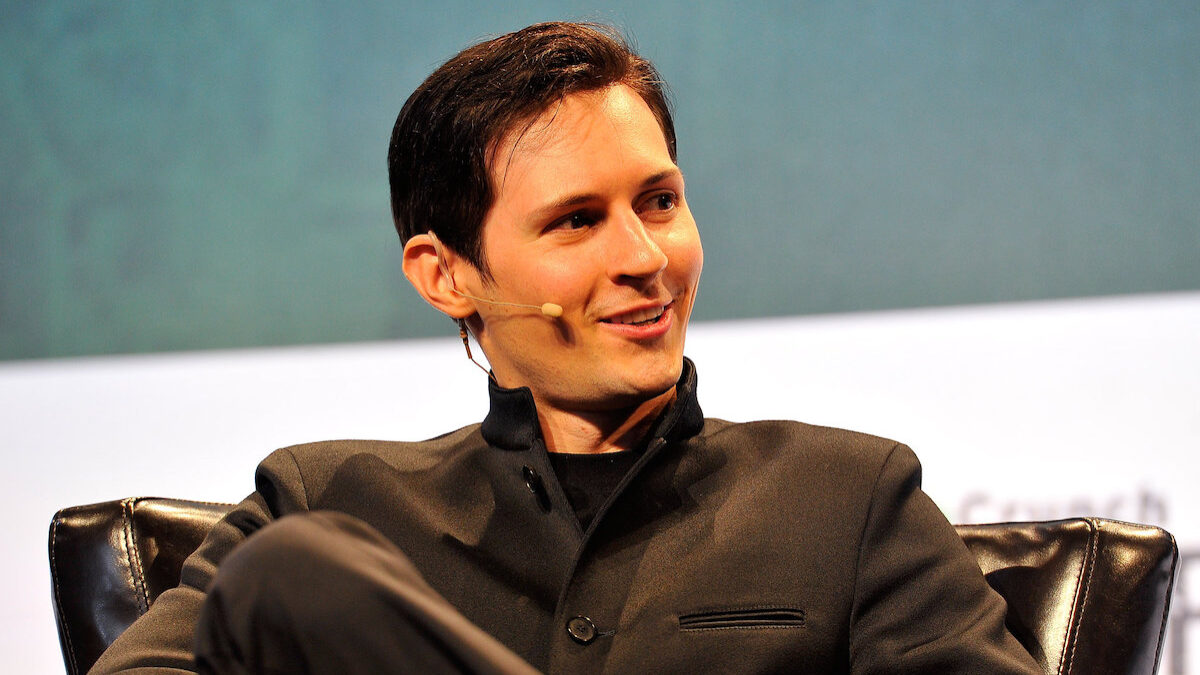
Donald Trump has a unique ability to get people on the Right to fight with each other. The latest internecine battle is an article by a pseudonymous writer, “John Ericsson,” in The Federalist, arguing that we should all get behind Trump in order to fight the politically correct left. A long, impassioned response by Jonah Goldberg followed.
In itself, this exchange is less interesting than it seems, but it raises some important questions about the role of the pundit and the purpose of debating ideas. Ericsson’s argument reflects the main trend I’ve been seeing in Trump apologia: the “binary choice” from the 2016 general election, still kept alive and inflated into an entire worldview. You are either with Trump, or you are with the bad guys. Here is how Ericsson makes the argument.
If Goldberg and Kristol want to secure a future for individual liberty and human flourishing in American life, they’ll need to learn the lesson that allowed Eliot Ness to realize his goal in The Untouchables. Ideas and persuasion alone—the path forward Goldberg offers—are as insufficient to stem the tide of illiberalism sweeping across the country as a few liquor raids were to bringing down Al Capone. To echo the challenge made to Ness by Malone, the streetwise Chicago cop who helped him bring down the crime boss, ‘What are you prepared to do?’
Actually, this line was not spoken by a streetwise Chicago cop to Eliot Ness. It was written by a Hollywood screenwriter and put into the mouth of a fictional character invented entirely for a Brian De Palma film. Students of the history of crime would also point out that Ness didn’t bring down Capone. That was done by George Johnson, the U..S attorney who prosecuted Capone for tax evasion. But I guess when you decide to jump on the Trump Train, you’ve already agreed to put theatrical bluster over careful analysis.
In response, Goldberg makes a very good point about this kind of “moral equivalent of war” argument.
William James, who coined the term, believed that war brought out what is best in people (men, mostly) and society in general. It causes us to lay down our petty individual pursuits to rally to a unifying cause larger than ourselves…. ‘Martial virtues must be the enduring cement’ of American society: ‘Intrepidity, contempt of softness, surrender of private interest, obedience to command must still remain the rock upon which states are built.’… All that was required to mold citizens into obligatory servants of the state was patience and the willingness of progressive leaders to make sure that they didn’t let good crises go to waste. ‘It is but a question of time, of skillful propagandism, and of opinion-making men seizing historic opportunities.’…
Ericsson’s analogy to The Untouchables is basically a moral-equivalent-of-war argument, just like Anton’s ‘Flight 93’ schtick. Presumably, neither of them takes the analogy to its logical conclusion. As with so many things, we are supposed to take it ‘seriously not literally,’ since a literal reading would wholly justify violence against our political opponents.
But the extensive counter-arguments are a bit misplaced. The case “Ericsson” makes for Trump is that political correctness is really, really bad and threatens to end freedom of speech. A lot of us already knew that and were “reluctant culture warriors” before he was.
What’s missing is the second half of the argument: explaining to us how Trump, or our more full-throated support for Trump, is going to help fight that threat. Most of the outrageous examples of politically correct intolerance, like The Atlantic‘s firing of Kevin Williamson or the stultifying political groupthink at Google, are outside the authority of the president of the United States. How is he going to reverse them?
The phenomenon of leftist intolerance for political dissent is a very large one, deeply embedded in elite culture going back more than a century. Carrying water for Trump seems an inadequate and ineffectual response. In fact, Ericsson makes no argument for this claim, not even an attempt at an argument—which makes the whole debate a bit of an intellectual anticlimax and probably not worth the sally Goldberg put forth against it. There’s no “there” there.
Yet this does express a growing trend among the Right, a trend of which Trump is not the cause but the symptom: a kind of existential panic, producing an angry impatience with ideas and intellectuals and pundits. It is a desire to do something, to break things, to rebel—with no attempt to figure out how this dramatic action is going to produce a beneficial result.
Here’s where I disagree with the analysis of this debate by our esteemed publisher. Ben Domenech describes this as “just another demonstration of the reordering of the coalitional hierarchy of priorities within the American right.”
Principled conservatives but practical big-tent types who understand we need a broad coalition to win were supposed to be what the fusionists were about. That’s one of the reasons people like Jonah have been supportive of the broader reformocon project, or at least open to the insight that Republicans required a new and more-downscale policy agenda. Trump didn’t give them the one they wanted, but that is what he pulled off. Needless to say, this isn’t the synthesis I wanted either! But we live in the world as it is.
Whether Trump has actually managed to bring voters together under a “big tent” remains to be demonstrated, and it will take several election cycles to do so. I’ll just point out that the whole premise of this debate is that he has not managed to unite the political right already.
I agree that Trump is in the process of “re-ordering” the conservative coalition, but he is not doing it merely by elevating some ideological wing of the Right over the others. He is re-ordering it to be less ideological. To be more exact, he reflects the surge of a less ideological, more emotional constituency. He reflects the belief, as Ericsson puts it, that “ideas and persuasion…are insufficient.”
The logical implication of this is that it’s time for a civil war and we should just start shooting people. The people who make this argument aren’t willing to carry it that far, so they settle for the middle ground of acting really angry and belligerent. This is the overwhelming character of our politics right now, on both sides: a kind of simulated, virtual civil war, with all the hatred, acrimony, shunning, and accusations of treason—but (for now) mostly without shooting.
This doesn’t mean that any of the profound problems facing the republic have gone away. It just means that we’re going to be too busy screaming at the “elites” to do anything about them. The symbol of this, and the most substantive failure of Trump’s presidency so far, is the bloated budget that he signed, which pushes us farther down a course that ends in fiscal disaster. And nobody cares. Yet.
This is what the intellectuals and pundits, whatever is left of us, should be focusing on. I don’t mean that we should be publishing piece after piece warning an unwilling public about the unsustainability of the entitlement state. Instead, our main job is to help shore up the moral, intellectual, and ideological foundations that will make it possible to get through the crisis when it comes. Yes, that means fighting the totalitarian impulse behind PC conformity—but it means a lot more, including fighting back against the tribalism and fake entertainment that is increasingly being substituted for actual political debate.
When the going really gets rough, ideas and persuasion will have to be sufficient, because we don’t have anything better.
Robert Tracinski is a senior writer for The Federalist. His work can also be found at The Tracinski Letter.









